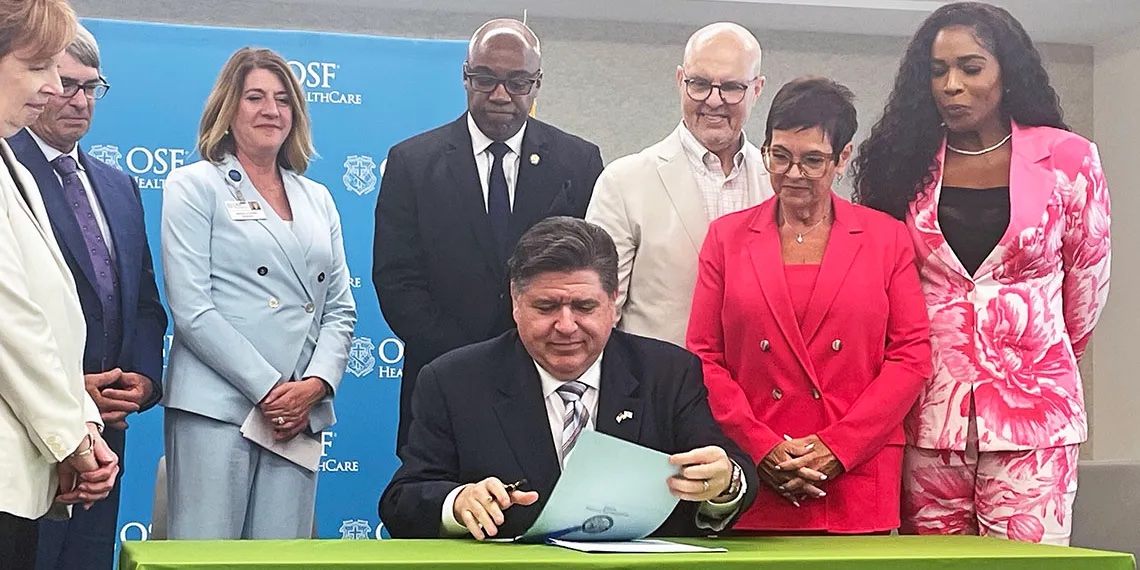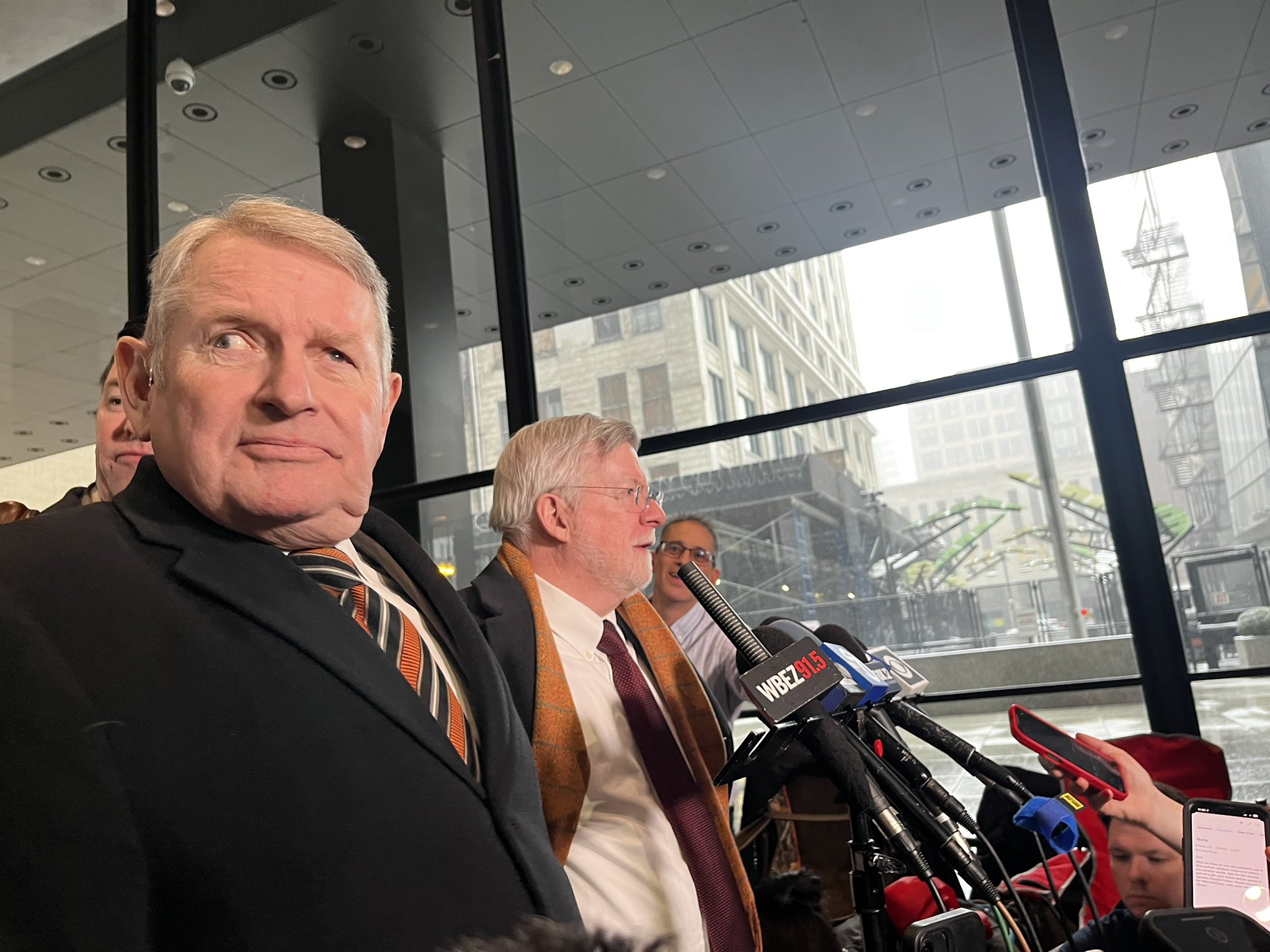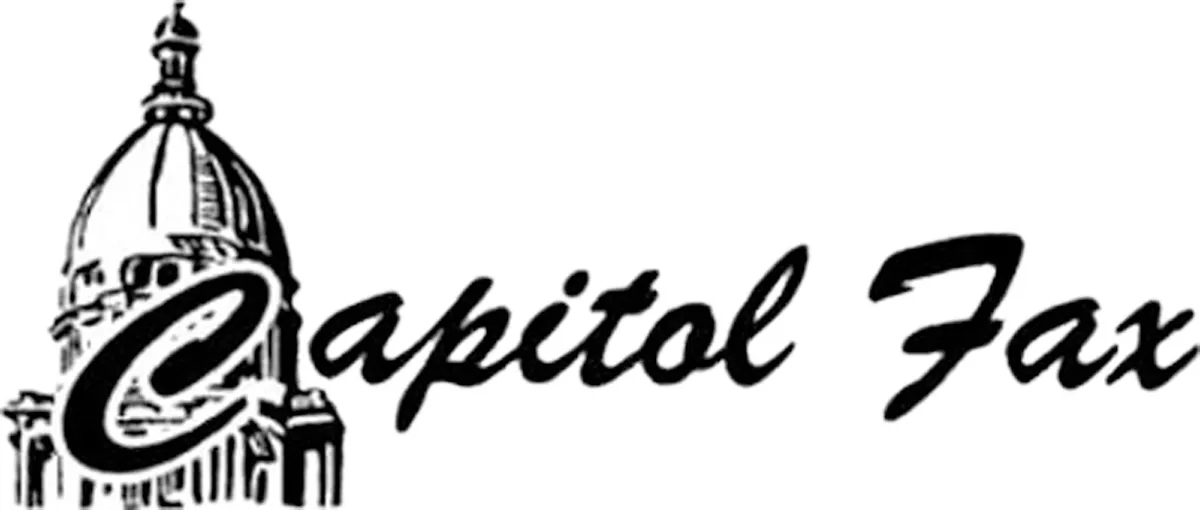On Tuesday, Governor JB Pritzker signed two legislation pertaining to health care, which he said will increase insurance coverage for some types of hospital expenses and place additional restrictions on the cost of prescription medications provided via insurance plans.
At a bill signing ceremony in Peoria, Pritzker stated that predatory actors and profit-seeking middlemen have been infiltrating our health care system for far too long in an attempt to make an extra cent at the expense of Illinois consumers. Elderly people have had to pay exorbitant prices for life-saving drugs. Due to financial constraints, families have been forced to postpone or refuse medically necessary procedures. Additionally, independent pharmacies and other family-run companies have been forced to close.
The Prescription Drug Affordability Act, House Bill 1697, will place additional limitations on the operations of pharmacy benefit managers, or PBMs, a significant but poorly understood sector of the pharmaceutical business.
PBMs are businesses that serve as a sort of go-between for pharmaceutical firms and health insurance plans, negotiating drug costs and creating formularies that aim to direct patients toward less expensive prescription drugs.
However, in recent years, they have faced harsh criticism for operating pricing systems that are intended to maximize profits for the PBMs rather than saving patients money and for directing patients toward their own affiliated retail chain pharmacies, frequently at the expense of smaller independent pharmacies.
PBMs will not be allowed to direct customers to big pharmacies in which they have a financial stake under the law. Additionally, they will not be allowed to use spread pricing, which is the practice of charging health plans more for a medication than the PBM reimburses a pharmacy for delivering it.
Additionally, the law creates a grant program that will use a levy on PBMs doing business in Illinois to provide $25 million annually in financial assistance for independent pharmacies.
The initiative was dubbed historic legislation by David Bagot, a Petersburg-based independent pharmacist and president of the Illinois Pharmacists Association, who said it will be researched and duplicated in other states.
According to him, this measure is the most extensive reform of pharmaceutical benefit managers that Illinois has seen. For far too long, these corporations have exploited the country’s pharmaceutical supply chain to enrich executives and stockholders at the expense of those who depend on prescription drugs and to force pharmacies out of business.
However, PBMs’ lobbying group, the Pharmaceutical Care Management Association, referred to the bill as flawed legislation and said it would have little to no effect on the cost of prescription drugs for consumers.
According to the group’s statement, the measure does nothing to address the reality that Big Pharma determines the price of prescription medications, which is the issue for certain Illinoisans who find it difficult to pay for them. Since 2016, lawmakers have enacted 20 legislation limiting and regulating PBMs; yet, none of these have resulted in decreased prescription costs.
Insurance coverage expansion
Additionally, Pritzker signed the Healthcare Protection Expansion Act, also known as House Bill 3019.
It forbids, among other things, the requirement of prior authorization for outpatient mental health services by state-regulated health plans. Lawmakers enacted a similar ban on emergency and inpatient mental health treatments last year.
Additionally, it mandates that insurance policies pay for a patient’s travel expenditures anytime they must travel far to obtain in-network care—a challenge that many patients in the state’s rural areas encounter.
According to a statement from state senator Laura Fine, D-Glenview, a lead sponsor of the bill, “this law gives people more opportunities and flexibility to receive necessary services, building on protections that make mental health care accessible for all Illinois residents.”
Hundreds of news outlets throughout the state receive coverage from the state government through Capitol News Illinois, a nonprofit, unbiased news organization. The Robert R. McCormick Foundation and the Illinois Press Foundation provide the majority of its funding.
This story is reproduced here under a Creative Commons Attribution-NoDerivatives 4.0 International License, which was originally published on Capitol News Illinois.












